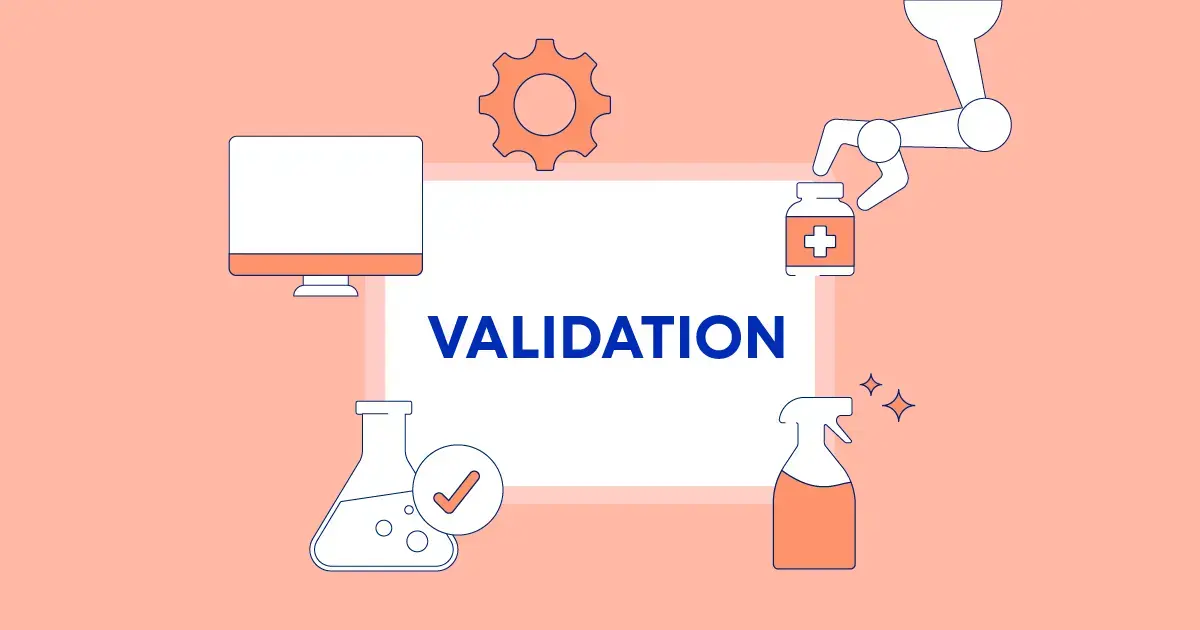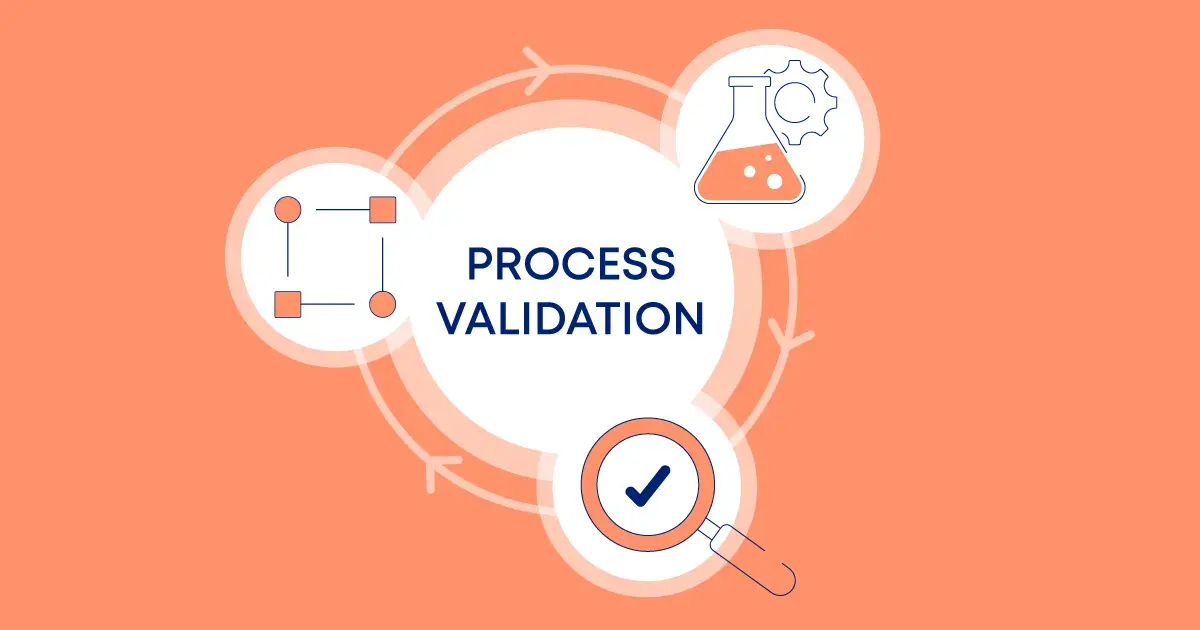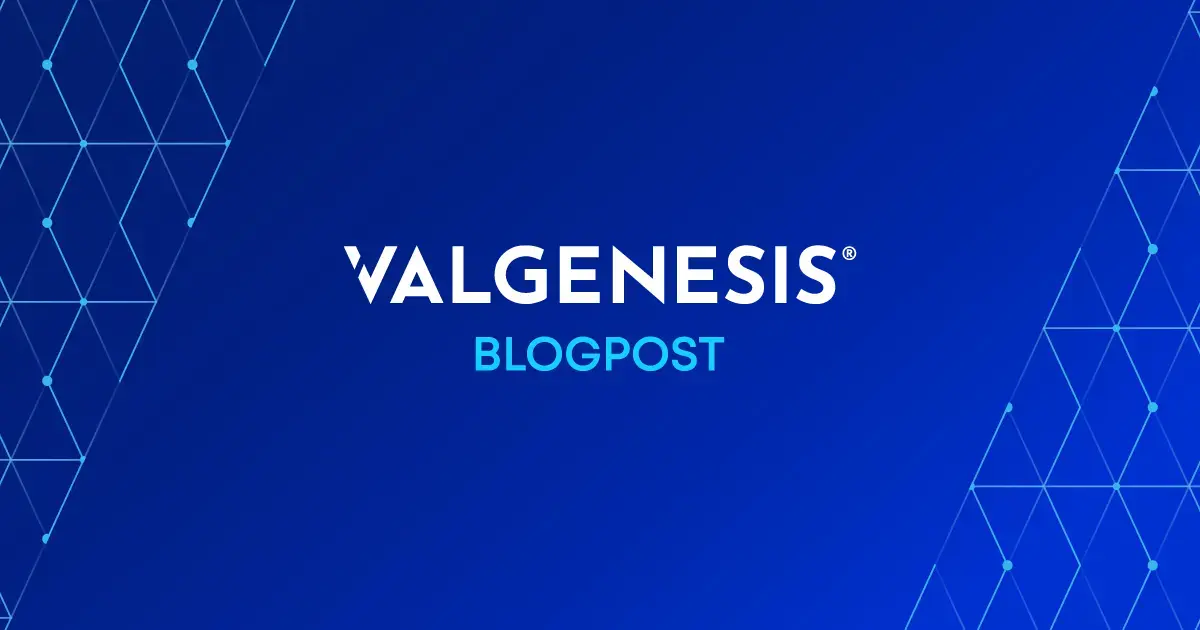Types of Validation in the Pharmaceutical Industry


Various types of validation are required throughout the drug product development and manufacturing lifecycle. In this post, we'll explore the key types of validation in the pharmaceutical industry.
Regulatory agencies not only require life sciences companies to produce a product that meets its specifications but also demand that the processes, procedures, and activities performed during the manufacturing of that product generate reproducible results that meet stringent quality standards. This is achieved through validation.
The FDA defines validation as "establishing documented evidence that provides a high degree of assurance that a specific process will consistently produce a product meeting its predetermined specifications and quality attributes."
Types of Validation: What You Need to Know
Validation is crucial for maintaining and ensuring the overall quality of drugs and other regulated products. There are several different types of validation in the pharmaceutical industry.
Process Validation
In its Process Validation: General Principles and Practices Guidance, the FDA defines process validation as "the collection of data from the process design stage throughout production, which establishes scientific evidence that a process is capable of consistently delivering quality products."
You can break down process validation into three stages:
(1) Process Design: In this phase, the commercial process is determined using insights obtained from development and scale-up tasks.
(2) Process Qualification: At this phase, the process design is verified to be capable of consistent commercial production.
(3) Continued Process Verification (CPV): During this last stage, continuous monitoring is implemented to ensure that the process maintains its controlled state. (Learn how to set up a digital CPV plan in three steps.)
We commonly classify process validation based on the timing of its execution relative to the production schedule. According to this description, there are four distinct types of process validation: prospective validation, retrospective validation, concurrent validation, and revalidation.
ValGenesis' digital process validation solution helps organizations overcome process validation complexity from design to commercial production while establishing scientific evidence they can deliver a safe, high-quality product.
Cleaning Validation
If you're producing pharmaceuticals, vaccines, or other regulated products, an effective cleaning validation program is critical to your manufacturing process. Inadequate cleaning of contact surfaces, packaging, and equipment can contaminate products, leading to production delays, product waste, FDA 483 observations, and costly regulatory citations.
Title 21 Code of Federal Regulations (CFR), Part 211, Current Good Manufacturing Practice for Finished Pharmaceuticals governs cleaning validation compliance for pharmaceutical products in the United States. The European Medicines Agency (EMA), the Pharmaceutical Inspection Co-operation Scheme (PIC/S), and a host of other regulatory organizations have released similar cleaning validation guidelines.
To stay compliant, you must scientifically demonstrate and document that your cleaning methods consistently remove residues below the established acceptance criteria. ValGenesis' cleaning validation software can help you implement a program that protects product integrity and eliminates the challenges associated with paper-based cleaning validation methods.
Equipment and Instruments Qualification and Validation
Regulatory guidelines dictate that the equipment and instruments used to manufacture regulated products, such as APIs and finished pharmaceutical drugs, must be qualified to ensure the products are made in a safe environment. Equipment qualification and validation (EQV) is a complex process.
Drug companies must prove the equipment and instruments used during manufacturing were correctly installed, work properly, and will produce the expected results consistently. The complexity of drug manufacturing makes this a monumental task. Labs are filled with instruments of all types, and each piece of equipment comes with its own validation protocols.
ValGenesis offers a digital EQV solution that enables you to fully automate the entire equipment and instruments validation lifecycle from planning to execution. Users can merge vendor data and test results, such as factory/site/user acceptance tests (FAT/SAT/UAT), directly into test protocol test steps with source references.
Computer System Validation and Computer Software Assurance
In the context of drug manufacturing, CSV involves validating the computer systems (software and hardware) used in critical processes to ensure data integrity, security, and reliability.
CSV can be costly and time-consuming, particularly if you’re validating on paper and haven’t adopted a risk-based approach to determine the appropriate level of testing and documentation required to meet regulatory expectations. The FDA's General Principle of Software Validation Guidance outlines these expectations.
Due to its complexity, CSV is best suited for high-risk systems that directly impact patient safety or product quality. If a system is deemed low- to medium-risk, computer software assurance (CSA), a simplified method for performing CSV, can reduce project costs and accelerate time to market. Unfortunately, if you’re validating on paper, you'll lose any potential efficiency gains from CSA. (Read Your Guide to Computer Software Assurance to access our blog and podcast series on CSA.)
Whether you decide to use the traditional CSV methodology or the more modern, streamlined CSA approach, shifting to a paperless, automated model can lighten your validation burden to save you considerable time, money, and effort.
Analytical Method Validation
Analytical method validation establishes documented evidence that the procedure adopted for a test is fit for the intended purpose in terms of quality, reliability, and consistency of results. This includes assessing parameters such as specificity, linearity, accuracy, precision, robustness, and limits of detection and quantitation. The objective is to demonstrate that if the identical method is implemented in any laboratory worldwide, with the same conditions and control parameters, the outcomes should align.
Validation of analytical methods is essential for compliance and ensuring the efficacy of pharmaceutical products. Regulatory agencies such as the FDA require companies to demonstrate that their analytical methods are scientifically sound and capable of producing reliable results. This is especially important when it comes to measuring critical quality attributes of drug products, as these attributes directly impact patient safety and product quality.
Turning Validation into a Powerful Competitive Advantage
Validation plays a vital role in the drug development and manufacturing lifecycle. All systems, equipment, processes, and procedures that have GxP impact require some type of validation.
We often associate validation with endless testing, extensive documentation, and tedious processes. However, digital tools like ValGenesis iVal have turned validation from a burden into a competitive advantage.
Watch the webinar "How to (Really) Calculate the ROI of Digitized Validation" to learn more about the benefits of adopting a digital validation platform.
Digital Validation
Emmanuel Cansino
Senior Director Industry Solutions
Related Blog Posts

Best Practices for Process Validation in the Pharmaceutical Industry
Learn best practices for process validation in the pharma industry. Find out how digitalization streamlines validation operations and improves product quality.
By Maria Batalha
Read
Five Cleaning Validation Challenges Digitalization Solves
This post examines five cleaning validation challenges that can be eliminated by digitizing your cleaning validation approach with ValGenesis.
By Lisa Weeks
Read
The Pharma 4.0 Vision for Manufacturing Intelligence
Digital validation and automation meet complex product lifecycle needs but they're only enablers to the intelligence at the heart of manufacturing activity. Learn how ValGenesis is expanding its product vision beyond validation toward a holistic manufacturing intelligence platform.
By Althea D’Sylva
Read